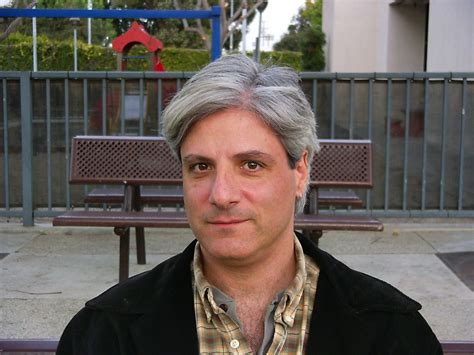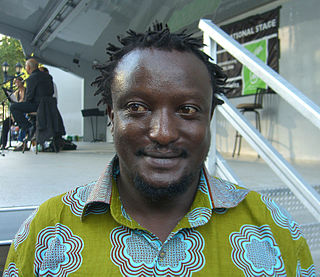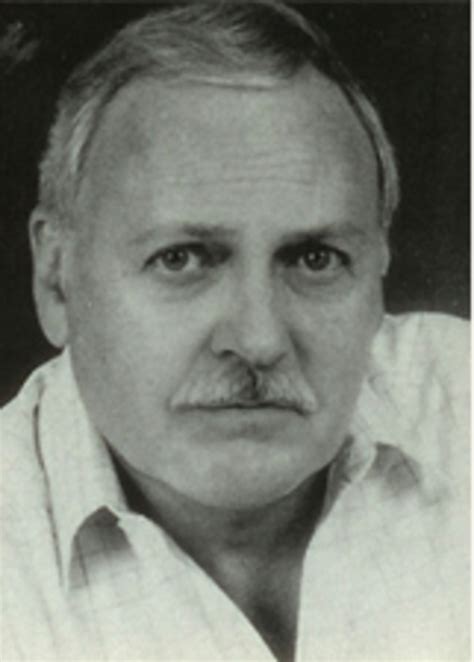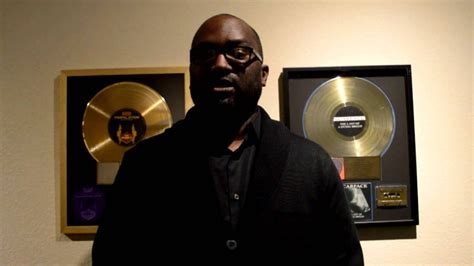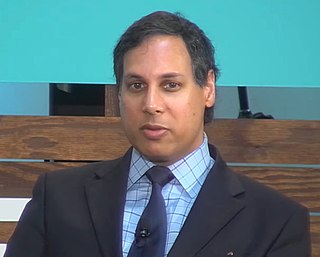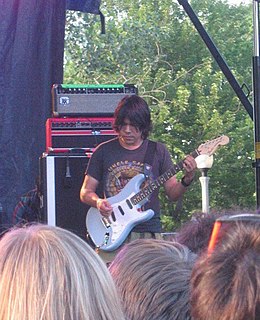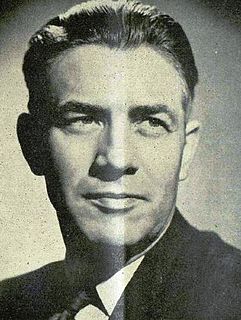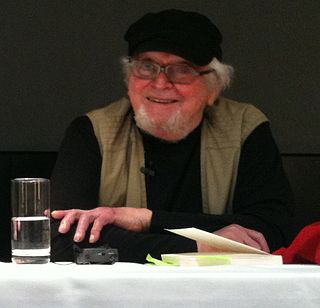Top 716 Section Quotes & Sayings - Page 12
Explore popular Section quotes.
Last updated on November 9, 2024.
Blood had long since ceased to beat from one end to the other, but one could sense, from passages marked with fresher traces of wheels and hooves, that once the meaning and even the very idea of a long journey was lost, sleep had not descended over it in one fell swoop: it had continued to steal a march here and there, in a discontinuous way, and over short distances, like a laborer who feels his cart jolt on a section of Roman road that crosses his field.
Everything is un-American that tends either to government by a plutocracy or government by a mob. To divide along the lines of section or caste or creed is un-American. All privileges based on wealth, and all enmity to honest men merely because they are wealthy, are un-American-both of them equally so. The things that will destroy America are prosperity-at-any-price, peace-at-any-price, safety-first instead of duty-first, the love of soft living and the get-rich-quick theory of life.
Galen , in the third section of his book, "The Use of the Limbs," says correctly that it would be in vain to expect to see living beings formed of the blood of menstruous women and the semen virile, who will not die, will never feel pain, or will move perpetually, or shine like the sun. This dictum of Galen is part of the following more general proposition: Whatever is formed of matter receives the most perfect form possible in that species of matter; in each individual case the defects are in accordance with that individual matter.
Just in time for the renewal of the war debate in Congress, the University of Chicago Press has released The U.S. Army / Marine Corps Counterinsurgency Field Manual. . . . It's a nifty volume, not only because it gives you a sense of what our most highly regarded military theorists are thinking but because sometimes what they're thinking is the last thing you'd expect. Especially interesting is a section called 'Paradoxes of Counterinsurgency Operations,' which tells us: 'Sometimes doing nothing is the best reaction' and 'Sometimes, the more force is used, the less effective it is.'
Wrapping rubber bands around a watermelon is not journalism. It is entertainment. But the key to success in media has always been a broad mix of serious reporting and entertainment. The New York Times does not make its money on reports about Iraq and Syria. It makes money on its gardening section, food and, yes, stories about cats. "The Today Show" is a very successful program because it is a mix of the celebrity chef and the crazy pet who does the rolls and serious news and interviews.
That's always attractive to me, to work with music whose form is a big question mark. Even many of my favorite bands growing up, when I was just a kid learning to play drums and guitar and everything, were bands like Pink Floyd, where the arrangement, the number of bars in each section is unconventional and often lopsided, and there will be small little instrumental interludes and that sort of thing. So those odd forms, as well as dark content, are the things that I think are continuous through all the type of projects that I've been attracted to.
International correspondents with their long dictaphones, and dirty jeans, and five hundred words before whiskey, are slouched over the red velvet chairs, in the VIP section in the front, looking for the Story: the Most Macheteing Deathest, Most Treasury Corruptest, Most Entrail-Eating Civil Warest, Most Crocodile-Grinning Dictatorest, MOst Heart-Wrenching and Genociding Pulitzerest, Most Black Big-Eyed Oxfam Child Starvingest, Most Wild African Savages Having AIDS-Ridden Sexest with Genetically Mutilatedest Girls...The Most Authentic Real Black Africanest story they can find.
[James Comey] should have gone to the Public Integrity section and said 'What do you folks think.' It's a little bit of an odd situation because he's a former deputy attorney general as well as head of the FBI so he may have trouble keeping on only the investigator hat forgetting that he's a former deputy attorney general. So it's not a good thing, it's a distraction so I think we should just ignore it because there's nothing there so get on with the business of last week of the election.
Consistent with section 202(d) of the National Emergencies Act, 50 U.S.C. 1622(d), I am continuing for 1 year the national emergency previously declared on September 14, 2001, in Proclamation 7463, with respect to the terrorist attacks of September 11, 2001, and the continuing and immediate threat of further attacks on the United States. Because the terrorist threat continues, the national emergency declared on September 14, 2001, and the powers and authorities adopted to deal with that emergency must continue in effect beyond September 14, 2010.
One substitute for the disappearing Evil Empire (The Soviet Union) has been the threat of drug traffickers from Latin America. In early September 1989, a major government-media blitz was launched by the President. That month the AP wires carried more stories about drugs than about Latin America, Asia, the Middle East and Africa combined. If you looked at television, every news program had a big section on how drugs were destroying our society, becoming the greatest threat to our existence, etc.
In order to be a leader a man must have followers. And to have followers, a man must have their confidence. Hence, the supreme quality for a leader is unquestionably integrity. Without it, no real success is possible, no matter whether it is on a section gang, a football field, in an army, or in an office. If a man's associates find him guilty of being phony, if they find that he lacks forthright integrity, he will fail. His teachings and actions must square with each other. The first great need, therefore, is integrity and high purpose.
It is true that the path of human destiny cannot but appal him who surveys a section of it. But he will do well to keep his small personal commentarie to himself, as one does at the sight of the sea or of majestic mountains, unless he knows himself to be called and gifted to give them expression in artistic or prophetic form. In most other cases, the voluminous talk about intuition does nothing but conceal a lack of perspective toward the object, which merits the same judgement as a similar lack of perspective toward men.
Our enemies are all those in league with imperialism - the warlords, the bureaucrats, the comprador class, the big Landlord class and the reactionary section of the intelligentsia attached to them. The leading force in our revolution is the industrial proletariat. Our closest friends are the entire semi-proletariat and petty bourgeoisie. As for the vacillating middle bourgeoisie, their right wing may become our enemy and their left wing may become our friend - but we must be constantly on our guard and not let them create confusion within our ranks.
If animals are no longer quite outside the moral sphere, they are still in a special section near the outer rim. Their interests are allowed to count only when they do not clash with human interests. If there is a clash - even a clash between a lifetime of suffering for a nonhuman animal and the gastronomic preference of a human being - the interests of the nonhuman are disregarded. The moral attitudes of the past are too deeply embedded in our thought and our practices to be upset by a mere change in our knowledge of ourselves and of other animals.
Part of writing a novel is being willing to leap into the blackness. You have very little idea, really, of what's going to happen. You have a broad sense, maybe, but it's this rash leap. It's like spelunking. You kind of create the right path for yourself. But, boy, are there so many points at which you think, absolutely, I'm going down the wrong hole here. And I can't get back to the right hole. I'm not going to be able to get this section back to the right hole - so I'm just going to have to cut it.
McEwan's Atonement…truly dazzles, proving to be as much about the art and morality of writing as it is about the past…. The middle section of Atonement, the two vividly realized set pieces of Robbie's trek to the Channel and Briony's experiences with the wounded evacuees of Dunkirk, would alone have made an outstanding novel…. There is wonderful writing throughout as McEwan weaves his many themes — the accidents of contingency, the sins of absent fathers, class oppression — into his narrative, and in a magical love scene.
The seven white notes on the piano - each section of the piece (there are 12 sections) is five of those seven white notes. If you calculate it, there are 21 groups of five notes in any group of seven notes. And although there are 12 sections, this piece actually uses nine of those groups because some of the sections repeat earlier ones. So that's the formula. It's very simple as a way of generating something. It's my inner minimalist.
I had my daughter by C-section, so knew when and where she was going to be born. I got freakishly organized and prepared a group e-mail birth announcement. Unfortunately, I accidentally pressed Send All. I then had to send another e-mail saying, "I'm really sorry but I haven't actually had the baby yet." Then, when I actually did have the baby, I felt too embarrassed to send another e-mail saying, "I've definitely had the baby now."
One summer day, while I was walking along the country road on the farm where I was born, a section of the stone wall opposite me, and not more than three or four yards distant, suddenly fell down. Amid the general stillness and immobility about me the effect was quite startling. ... It was the sudden summing up of half a century or more of atomic changes in the material of the wall. A grain or two of sand yielded to the pressure of long years, and gravity did the rest.
Like, when we did Parliament and Funkadelic and Bootsy, it was actually one thing. But there were so many people that you could split them up into different groups. And then, when we went out on tour and they [the record companies] would see us all up there together - we had five, six guitars playing at one time, not including the bass! -, they said: "Wait a minute, that's just one whole group, selling different names!" But it wasn't - we had enough people in the group that each member would have a section to be another group. So now we're finally starting to get them to understand that.
It was a matter of not seeing the woods for the trees. Glorious songs have been in Ireland forever, but a lot of these were so popular they were sung only by drunken men at weddings. They didn't have any regard for the song at all. So, I picked out 14 songs that I had grown up with, songs with great melodies. After 35 years as a songwriter, I appreciate the value of a good melody because I know how hard it is to write one. So I presented them in a new way, with piano, keyboards, strings, and a contemporary rhythm section. I just treated the melody with a bit of dignity and a bit of style.
I do not want to presuppose anything as known. I see in my explanation in section 1 the definition of the concepts point, straight line and plane, if one adds to these all the axioms of groups i-v as characteristics. If one is looking for other definitions of point, perhaps by means of paraphrase in terms of extensionless, etc., then, of course, I would most decidedly have to oppose such an enterprise. One is then looking for something that can never be found, for there is nothing there, and everything gets lost, becomes confused and vague, and degenerates into a game of hide and seek.
Their preservation depends upon a sentiment. As sentiment never yet annihilated a paying industry, we cannot hope to stay, wholly, the ax and saw of the lumberman. But popular opinion, combined with action, if directed intelligently towards the setting apart of some one section of the noble redwood forests... will, I believe, save for our present delight and for that of the generations who come after us, at least one grand forest of the Sequoia sempervirens such as the world cannot show elsewhere, such as a thousand years cannot reproduce.
I learned to fire guns at the age of nine or so, but luckily was not out killing people. We zigzagged the streets to escape those trying to kill us. I guess it would have been a matter of time till I turned around with a gun myself, to go after those coming for us. But I was fortunate. The grenade incident was about an explosion which destroyed a section of my school, from a grenade that me and my cousin detonated by accident. We both lived to tell about it.
In Harlem, for instance, all of the stores are owned by white people, all of the buildings are owned by white people. The black people are just there - paying rent, buying the groceries; but they don't own the stores, clothing stores, food stores, any kind of stores; don't even own the homes that they live in. They are all owned by outsiders, and for these run-down apartment dwellings, the black man in Harlem pays more money than the man down in the rich Park Avenue section.
Most Muggles lived in a world defined by the limits of what you could do with cars and telephones. Even though Muggle physics explicitly permitted possibilities like molecular nanotechnology or the Penrose process for extracting energy from black holes, most people filed that away in the same section of their brain that stored fairy tales and history books, well away from their personal realities: Long ago and far away, ever so long ago.
I'm the enemy. Because I like to think, I like to read. I'm into freedom of speech, the freedom of choice. I'm the kind of guy who likes to sit in a greasy spoon and wonder - "Gee, should I have the T-bone steak or the jumbo rack of BBQ ribs with the side order of gravy fries?" I want high cholesterol. I wanna eat bacon and butter and buskets of cheese, okay? I wanna smoke a Cuban cigar the size of Cincinnati in the non-smoking section. I wanna run through the streets naked with green Jell-O all over my body reading Playboy magazine. Why? Because I suddenly might feel the need to, okay, pal?
When I was a kid, I'd go to the African-American section in the bookstore, and I'd try and find African-American people I hadn't read before. So in that sense the category was useful to me. But it's not useful to me as I write. I don't sit down to write an African-American zombie story or an African-American story about elevators. I'm writing a story about elevators which happens to talk about race in different ways. Or I'm writing a zombie novel which doesn't have that much to do with being black in America. That novel is really about survival.
What would the world be like if you had to develop a power yourself before you could use it? Just as a silly example: How would the comment section on YouTube change if, to use it, you had to have the schooling necessary to have a basic understanding of how computers and the internet work? More seriously, would anyone smart enough to know how to design and build a tank, or a laser guided anti-aircraft missile, or a computer and video editing software be stupid enough to join ISIS? In fact, if such knowledge was required—would it even be possible for there to be standing armies?
He stops rocking the cage. "Oh, come on, Callie. It won't be fun if we don't rock it. In fact, the more we rock it, the better it'll feel." His voice drops to a deep whisper. "We can rock it nice and slow or really, really fast."... "Do I have your permission to rock away and give you the ride of your life?" Why does it feel like he's secretly talking dirty to me? "Yeah, go ahead, rock it nice and hard," I say without thinking, then bite down on my lip as the dirty section of my brain catches up with me. Honestly, I didn't even know that side existed.
Mo Willems was so helpful. I had met him a number of times, and I knew from his books how funny he was, of course, but it was really neat to be able to have his feedback. He's so great with comic timing. Working with him was like taking a master class in comic timing, because he could pinpoint right away if a section wasn't working. I remember him saying once, "No, you need a beat between this page and this page," and it was like, oh yeah, of course. I hadn't seen it, but being so good at what he does, Mo noticed it right away.
Though methods play an important role in the early stage, the techniques should not be too mechanical, complex or restrictive. If we cling blindly to them, we shall eventually become bound by their limitations. Remember, you are expressing the techniques and not doing the techniques. If somebody attacks you, your response is not Technique No.1, Stance No. 2, Section 4, Paragraph 5. Instead you simply move in like sound and echo, without any deliberation. It is as though when I call you, you answer me, or when I throw you something, you catch it. It's as simple as that - no fuss, no mess.
The first and most important rule to observe...is to use our entire forces with the utmost energy. The second rule is to concentrate our power as much as possible against that section where the chief blows are to be delivered and to incur disadvantages elsewhere, so that our chances of success may increase at the decisive point. The third rule is never to waste time. Finally, the fourth rule is to follow up our successes with the utmost energy. Only pursuit of the beaten enemy gives the fruits of victory.
I was in a store in Halifax, Nova Scotia that I love, sort of like an environmental friendly sort of store. But they had a great book section. So I went in there all the time. The woman who worked there - which I feel so bad; I've forgotten her name - she handed me the book and she said, "Hey, you should read this. I think it would make a good movie." I remember reading the back of it and I was like, "Huh." Then I just devoured the book and I was so moved by it and said, "Why don't we start developing this into a film?" So that's how it ['Into the Forest'] all started.
You see, one strand...of anarchism believed that you needed to use essentially homeopathic doses of terror by assassinating people, et cetera, the so-called 'propaganda of the deed', and that this propaganda of the deed would rouse people up, give them confidence to rise up. Another section believed 'No, it was not by seeing something happen that people get confidence, but it's by acting', in other words, the movements must go among the people and produce small struggles, bigger struggles, to give people greater and greater confidence.
The good things of life do not fall from the skies. They can only come by hard work and over a long time. The government cannot produce results unless the people support and sustain the work of the government. There may be times when, in the interest of the whole community, we may have to take steps that are unpopular with a section of the community. On such occasions, remember that the principle which guides our actions is that the paramount interest of the whole community must prevail.
What was really interesting in his speech, which, by the way, had (inaudible) footnotes - the written version of it - which might be a personal record for Donald Trump - the source of a lot of his numbers on the free trade section of the speech came from an organization called the Economic Policy Institute, which was a think tank or is a think tank that was founded by labor unions to promote the labor unions' point of view on free trade agreements.
A man dies and goes to heaven. He is being shown around by an angel. Everything is just so sweet and gentle, the total golden tender presence of God everywhere, a pond over there, a beautiful field there, and some hills for people who like to hike, and this expansiveness in every direction of sky and light and physical beauty. And there is this section separated from the rest; it has beautiful high walls. The man who's just come to heaven says, "What's over there?" The angel says, "That's for the fundamentalists. They don't consider it heaven if anyone else got in.
Poetry restores language by breaking it, and I think that much contemporary writing restores fantasy, as a genre of writing in contrast to a genre of commodity or a section in a bookstore, by breaking it. Michael Moorcock revived fantasy by prying it loose from morality; writers like Jeff VanderMeer, Stepan Chapman, Lucius Shepard, Jeffrey Ford, Nathan Ballingrud are doing the same by prying fantasy away from pedestrian writing, with more vibrant and daring styles, more reflective thinking, and a more widely broadcast spectrum of themes.
Steinberg occupies a position that is very dear to those of us who've held it over the years: sports columnist at The Post. If all he wants to do is be popular--and I think Dan is better than that--then the readers of The Washington Post sports section won't be very well served. Telling readers how great they are as sports fans was never one of my priorities. The only thing worse than people who can't stand to hear an unpopular or unflattering opinion is those that are too afraid to state one.
There are five of us. We've all played in various bands together, in different combinations. I know that Todd [Cook] and Tony [Bailey] are my favorite rhythm section - they're just like a unit. I guess we've all just played together in various capacities, so when the band was coming together, it was sort of like we just chose members because they had similar sensibilities and also because they're just cool. We all got along real well.
In the first section of the Doctrine and Covenants we read that 'the Lord shall come to recompense unto every man according to his work, and measure to every man according to the measure which he has measured to his fellow man.' (D&C 1:10.) This principle, showing the manner by which God will judge us, puts a new light upon the commandment to love our neighbors as ourselves, and should persuade us to take that law seriously.
Now, therefore, I, Gerald R. Ford, President of the United States, pursuant to the pardon power conferred upon me by Article II, Section 2, of the Constitution, have granted and by these presents do grant a full, free, and absolute pardon unto Richard Nixon for all offenses against the United States which he, Richard Nixon, has committed or may have committed or taken part in during the period from January 20, 1969 through August 9, 1974.
My only crash - I'm a safe driver, though I have scraped a couple of cars parking them - but my only real big crash was on the M11. It was a section with no street lamps, and it was really late at night so it was really dark. I was driving along in the middle lane doing 70mph, not going fast, and then suddenly in the lane in front of me there was this Ford Ka on its roof. I had no chance. I managed to avoid hitting it, but I span the car and hit the barriers. It was a write-off, but fortunately the person who'd been in the Ka was OK and I was fine, which is what matters.
In the classics section, she had picked up a copy of The Magic Mountain and recalled the summer between her junior and senior years of high school, when she read it, how she lay in bed hours after she should have gotten up, the sheet growing warmer against her skin as the sun rose higher in the sky, her mother poking her head in now and then to see if she'd gotten up yet, but never suggesting that she should: Eleanor didn't have many rules about child rearing, but one of them was this: Never interrupt reading.
I think that ties into our name and the meaning behind our name, going Against the Current. We don't really want to fit in to one section. If we're able to be grouped into one category then we've become something that already exists, probably. We want all of those kids that would come out to that pizza shop to come to our show and all of those kids who know us from the radio to come to that show. We have kids that come to our show that have been coming to concerts for years, and ones that it's their first concert and they just wanted to see it. I think that's the best way to do it.
How does the [New York] Times treat White pathology? They reported an epidemic of heroin addiction in the Philadelphia suburbs. which included emergency admissions and overdoses; these White people in the suburbs were doing heroin like it was going out of style. I counted the words: the article consisted of 200 words. "Heroin Epidemic" in the back section. Out here in California, the typical drug addict is a housewife or suburban White woman.
The Divine Comedy is a political poem and when you say poetry is not about - he's always quoted out of context, that "poetry makes nothing happen," that doesn't mean you shrug your shoulders and don't try to make anything happen. And Dante felt that poetry was engaged, there was a point of view; it's not my point of view, it's orthodox medieval Christianity, and I have my troubles with that. He didn't feel that you could just rule out so important a section of life - we care about these things, and it's out of caring about them that we write poetry.
An ordinary mirror is silvered at the back but the window of the night train has darkness behind the glass. My face and the faces of other travellers were now mirrored on this darkness in a succession of stillnesses. Consider this, said the darkness: any motion at any speed is a succession of stillnesses; any section through an action will show just such a plane of stillness as this dark window in which your seeking face is mirrored. And in each plane of stillness is the moment of clarity that makes you responsible for what you do.
I'd been influenced by reading books on art and colonies that existed in Paris and places like that and so when I came to Europe I came to France and I had very little money, and I had to live low and stayed in a bohemian section of Paris with a lot of other students, who were from medical school, science school and art school. We all lived in a kind of communal way and I was challenged politically, because I didn't have a clue and they would ask me questions about the Algerian War, which was very big in France in the late '50s.
The time I like listening to music most on headphones is, I have a game I play with my brother, he's a musician as well.And he sends me MIDI files of keyboard pieces. So, these are pieces where I just get a MIDI file; I don't know what instrument he was playing them on; I know nothing about his section of the sound of the piece, and then when I'm sitting on trains I do a lot of train travel I turn them into pieces of music. And I love to do that; it's my favorite hobby.
Protection of the life of the mother as an excuse for an abortion is a smoke screen. In my 36 years of pediatric surgery, I have never known of one instance where the child had to be aborted to save the mother's life. If toward the end of the pregnancy complications arise that threaten the mother's health, the doctor will induce labor or perform a Caesarean section. His intention is to save the life of both the mother and the baby. The baby's life is never willfully destroyed because the mother's life is in danger.
You took a walk on a Sunday afternoon and came to a nice neighborhood, very refined. You saw a small one of these trees through the iron gate leading to someone's yard and you knew that soon that section of Brooklyn would get to be a tenement district. The tree knew. It came there first. Afterwards, poor foreigners seeped in and the quiet old brownstone houses were hacked up into flats, feather beds were pushed out on the window sills to air and the Tree of Heaven flourished. That was the kind of tree it was. It liked poor people.
The decor bowled me over. Everywhere I looked, there was something more to see. Botanical prints, a cross section of pomegranates, a passionflower vine and its fruit. Stacks of thick books on art and design and a collection of glass paperweights filled the coffee table. It was enormously beautiful, a sensibility I'd never encountered anywhere, a relaxed luxury. I could feel my mother's contemptuous gaze falling on the cluttered surfaces, but I was tired of three white flowers in a glass vase. There was more to life than that.
I caught the look Benjamin gave me. "What?" "Nothing. We just thought a svetocha would be more, well, difficult." Leon's mouth twitched. "I do seriously want a slushie." I tried a tentative smile. I definitely liked him now. "I haven't had one in ages. Maybe the guys outside—the double blonds—would want one, too?" For some reason Leon found that utterly fricking hysterical. He snorted and chuckled all the way through Housewares to the Health and Beauty section, and even Benjamin unbent enough to grin.



